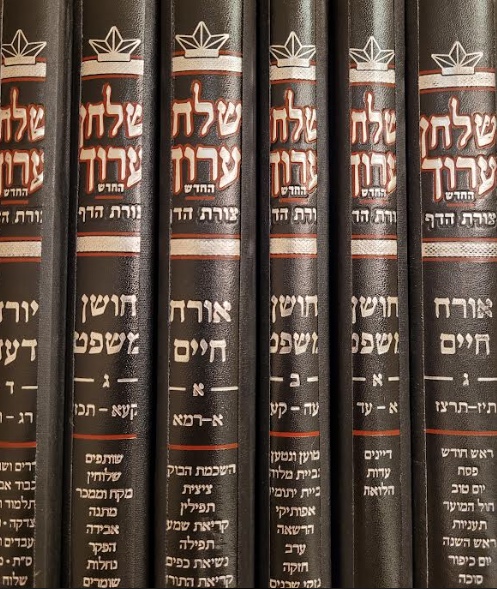Cleaning help
• They can do work in the house on Shabbos/Yov Tov, but they can only do melachah that makes their job easier for themselves.
• For example: they can wash dishes with hot water because it saves time over using cold water and nobody notices that melachah is being done.
• They cannot mop the floor, vacuum, or do laundry, etc.
• Mopping would be allowed if the floors are really dirty.
• They cannot be told on Yom Tov where the money for payment is. Rather, they should be told before Shabbos/Yom Tov, or paid after Shabbos/ Yom Tov.
• One may hint to a goy to turn off the flame of an oven.
• If one has absolutely no other way to heat up food, a goy can be asked to turn on the flame or crockpot, etc.
Fires/flames on Yom Tov
• One is allowed to light a fire from an existing flame on Yom Tov for a Yom Tov need.
• Electric ignition stoves cannot be turned on because they create a spark.
• This is why many leave a 24/48 hour candle lit the entire Yom Tov.
• Fire may be lit in order to provide light.
• Fire may not be extinguished on Yom Tov.
• Fire may not be extinguished, even if necessary to darken a room.
• These rules apply to a gas fed fire (which is typical) as well (although some quote Rav Moshe Feinstein z”l as allowing turning off gas fires).
• According to the Mechaber, a fire can never be lowered, even to save food from burning. The only option is to light a new flame that’s lower than the existing one. This is standard practice for Sepharadim.
• According to the Rema, however, if there’s no other way for the food to stay hot/warm without burning, the flame may be lowered; this is acceptable for Ashkenazim.
• Modern stovetops first go to high and then have to be lowered. Therefore, there’s no point in lighting a new flame and the existing flame can be lowered.
• Lowering a flame to save gas or because it’s too hot is not allowed.
• One may hint to a goy that it’s too hot in the house, etc. so that they will shut off the fire.
• In extreme heat, one may boil water that will be necessary for Yom Tov in a manner that it will bubble over and put out the flame. Then the gas can be turned off.
• The temperature on electric appliances can never be raised or lowered.
• Most poskim do not allow “Sabbath mode” ovens to be adjusted.
• Gas ovens with knobs can be adjusted higher with a shinui when the flame is on, and can be lowered or turned off when the flame is off. (All gas ovens cycle on and off.)
• Oven doors can be opened at any time.
• The same halachos apply to a BBQ grill.
• A yahrzeit candle should preferably be lit before Yom Tov. If it was not, it can be lit in a dark room so that it will provide light and subsequently moved.
• On Yom Tov, crockpots, hot plates, coffee makers, etc. can be put on Shabbos clocks to go on and off.
• Once the above are turned on, the pins can be removed with a shinui to cause them to remain on or off.
Showering on Yom Tov
• A full hot or even warm shower is אסור even with water that was heated up before Yom Tov.
• The minhag has always been to refrain from bathing on Shabbos and Yom Tov, even in cold water.
• One who is in pain due to not showering or one who is ill can wash his or her entire body with hot water, but ONLY with water heated before Yom Tov.
• Washing the body limb by limb is allowed but ONLY with water that was heated up before Yom Tov.
• One’s hands, feet, and face may be washed EVEN with hot water that was heated up on Yom Tov (some say that any part of the body may be washed this way, up to half the body).
• A child who is bathed EVERY day may be bathed with hot water that was heated up on Yom Tov, but NOT if it was heated up specifically for bathing31 (i.e., it must to be left over from cooking; the bath can be turned on in order to wash a dish and then left on to fill the tub).
• On a hot day one may take a cold shower. Some say that a small amount of hot water may be added to take away the sting from the cold water.
• In all cases: 1- one has to be very careful not to squeeze out water from one’s hair; 2- only liquid soaps can be used, and it can’t be lathered into hair.










